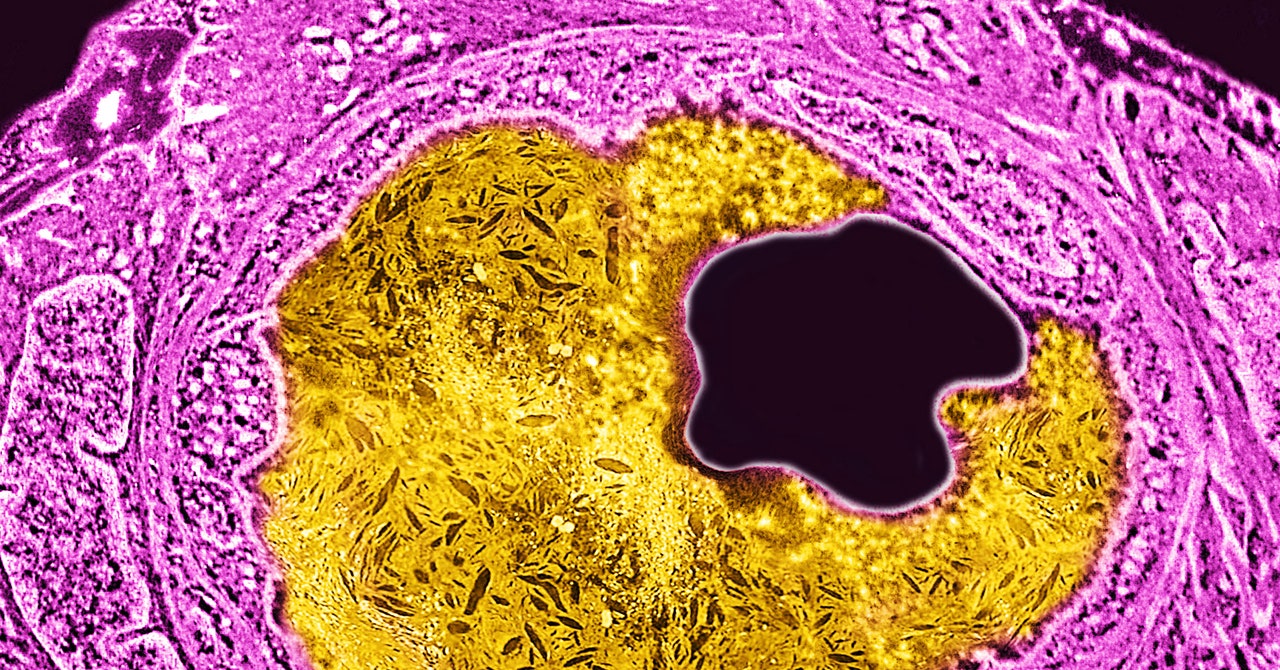Verve-101: Long-lived PCSK9 protein production by gene-editing mRNA molecules in DNA nanoparticles
“We learned that we get durable LDL lowering with the gene-editing strategy. This has never been done before,” said Karol Watson, a cardiologist at the University of California, Los Angeles, at a 12 November press briefing announcing the findings.
VERVE-101 consists of two RNA molecules packaged in a lipid nanoparticle — an mRNA molecule that edits adenine bases in DNA and a ‘guide RNA’ molecule to recognize PCSK9. After the treatment is injected, liver cells take up these nanoparticles, and once inside cells they make their way into the nucleii. Then, the base editor makes a single-letter change to the PCSK9 gene sequence, swapping an adenosine base with a guanine base. This turns off the gene and prevents liver cells from producing PCSK9 proteins.
The findings drew criticism. Verve’s share price fell by 40% despite their promise, after the results of the trial raised safety concerns and there was a death.
At a meeting of the American Heart Association in Philadelphia, Verve reported the interim results from a trial in the United Kingdom and New Zealand. After receiving approval from the FDA, it will continue its trial in the US next year.
The treatment caused some side effects, including flu-like symptoms for a short time as well as an increase in the amount of enzymes in the blood which came back to normal within days.
Preliminary results on gene editing in mouse and monkeys reveal no off-target editing in the PSCK9 gene or how the FDA requires it to be approved
“The sentiment for editing when there are viable alternatives is going to be a challenge. Time will tell if non-rare is feasible according to Michael Torres, co-owner of ReCode Therapeutics, in a post on X.
“From a scientific standpoint, there is still a lot of going in terms of addressing some of the key aspects of this technology,” says Luigi Naldini, a gene therapist at the Vita-Salute San Raffaele University in Milan, Italy. The delivery by nanoparticle is still early in the process.
Gene-editing approaches carry the risk of ‘off target’ edits elsewhere in the genome. In animal studies, the Verve team found no off-target editing in mice, and no evidence of the changes in the PSCK9 gene becoming heritable in monkeys. Verve aims to select the best therapeutic dose from the trial next year and to launch a phase 2 trial in 2025.
The firm must also follow trial participants for 14 years, as mandated by the FDA for gene-editing therapies. “This is a gene editing study — you are changing the genome forever. The importance of safety is going to be paramount because there are safe and effective strategies available for lowering cholesterol.
The first patient was treated just six months ago, and researchers are still following all of the participants. The preliminary results were presented at the American Heart Association’s annual meeting in Philadelphia on November 12.
